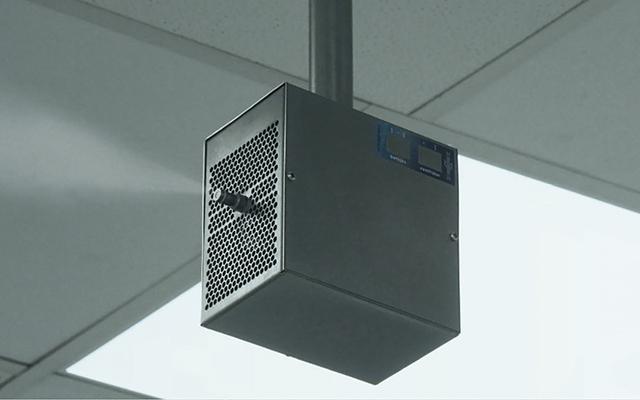Problem
Fatigue, lack of concentration, dry mucous membranes, weakened immune systems – dry indoor air makes people sick. The humidification system also binds fine dust in the air. Controlled humidity is important not only in production areas, but also in offices, showrooms and conference rooms. In large single-room offices, localized humidification, usually based on ultrasonic principles, doesn’t provide adequate protection.
Too dry air can affect your health in several ways. From irritated eyes and sinuses to respiratory and skin conditions, overexposure to dry air can cause a variety of symptoms. It can also increase the risk of certain diseases.
Since the majority of people are not outdoors 90% of the time, maintaining optimal indoor air humidity is critical for many health conditions. Indoors the ideal humidity level is between 30 and 50 percent. The risk of a range of health problems increases, when the air becomes drier than that.
Constant humidity
Clean, fresh air
Healthy working conditions
Problems caused by bad air
1. Asthma: bronchitis and other respiratory diseases. According to medical experts, asthma symptoms, especially spasms, can be aggravated by cold, dry air. In very low humidity environments, the fluid that hydrates the bronchial tubes can evaporate quickly. This can leave the airways vulnerable to irritation. This is particularly common in the winter months. In addition to asthma, symptoms of bronchitis, sinusitis and other respiratory diseases can be exacerbated by spending too much time in an environment with excessively dry air.
2. Sore throat: Dry air can also cause pain and inflammation in the throat. Several independent studies involving volunteers have shown that cold, dry air can directly cause sore throats after even a short period of exposure. The lower the air temperature and humidity, the more intense the irritation can be.
3. Eye irritation: if you work in an office environment where the air conditioning makes the air dry, this can thin the tear film that protects the cornea from damage. Small dry patches can form on the eye, making it more vulnerable to other types of eye irritants and infections. This can be particularly the case if you work for long periods in air-conditioned environments and especially if you work in front of a computer screen.
4. Dry skin and dermatitis : According to several studies, dry indoor air, especially air-conditioned environments, can lead to rough, dry skin. It can also aggravate eczema symptoms. Too dry air can reduce skin elasticity and weaken the skin’s barrier function. As a result, if you get into contact with an allergen or irritant, your skin can be more easily damaged.
5. Nosebleeds: nosebleeds are a common result of dry air. It is more common in winter months when homes and offices are heated, but can occur at any time of year when indoor air humidity is low.
6. Higher stress levels: research shows that spending longer periods of time in very dry indoor air can increase stress levels. In the 2020 Trusted Source study, researchers monitored the pulse and stress levels of workers in four separate buildings with varying levels of humidity. Researchers found that those who worked in buildings with drier air had higher heart rates, indicating a stress response. The same participants also reported poorer sleep.
Benefits:
+Cleaner air
+Less irritation
+Less lost working time due to sickness
+Work more efficiently by maintaining comfort in the workplace



Ask our Colleague!
Related content:
Take a look at our office humidification solution in action: if ceiling mounting is not an option, the humidification system can also be installed directly into the air duct.



